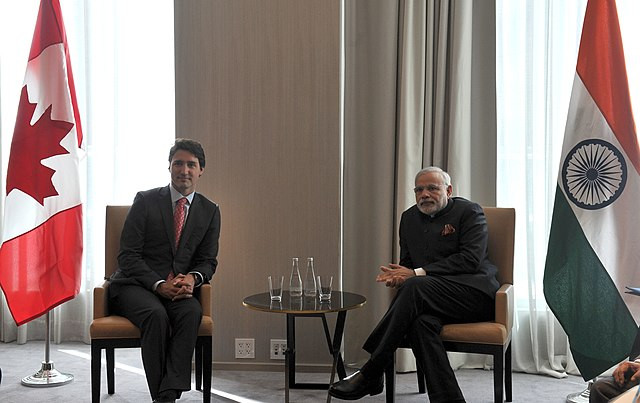In a recent development that has further strained the already tense diplomatic relations between India and Canada, New Delhi has reportedly instructed Ottawa to repatriate 40 of its diplomats by October 10th. Any diplomat remaining in India beyond this stipulated date risks having their diplomatic immunity revoked, as reported by the Financial Times, citing sources familiar with the situation.
The root of this escalating diplomatic rift can be traced back to comments made by Canadian Prime Minister Justin Trudeau. He had publicly stated that there were "credible allegations" pointing towards India's involvement in the assassination of Hardeep Singh Nijjar, an Indian-born Canadian citizen. In retaliation to these claims, India was quick to label the allegations as unfounded and subsequently imposed a visa ban on Canadians.
This recent directive to repatriate diplomats is the latest episode in this ongoing diplomatic saga. As per the report, Canada, which currently has a diplomatic presence of 62 members in India, has been asked to reduce this number by a significant 41. Peter Boehm, chair of the Canadian Senate Committee on Foreign Affairs and International Trade, commented on the situation, stating that declaring more Canadian diplomats as personae non gratae would only exacerbate the situation and make it harder to de-escalate the heightened emotions surrounding this disagreement.
Trudeau's allegations, which have been described as unsubstantiated, were reportedly a result of Canada's growing frustration over India's perceived lack of cooperation in the investigation into Nijjar's murder. In the lead-up to the G20 summit held in New Delhi in September, Canadian national security adviser Jody Thomas is said to have made two separate trips to India. While the Indian government neither confirmed nor denied these meetings, they were quick to reject the allegations surrounding Nijjar's death.
Furthermore, during a meeting between Trudeau and Indian Prime Minister Narendra Modi, the Indian side reportedly declined to collaborate with the police inquiry into the matter. S Jaishankar, India's external affairs minister, during his recent visit to the U.S., clarified that such covert operations were not a part of India's foreign policy. He further stated that India was open to examining any evidence that Canada might provide in relation to Nijjar's assassination.
Jaishankar also highlighted the challenges faced by Indian diplomats in Canada, citing instances of intimidation. He recounted incidents where smoke bombs were hurled at the Indian mission, acts of violence occurred outside Indian consulates, and individuals were specifically targeted and threatened.
As the situation continues to evolve, it remains to be seen how both nations will navigate these choppy diplomatic waters and whether a resolution can be reached that is amicable to both parties.





